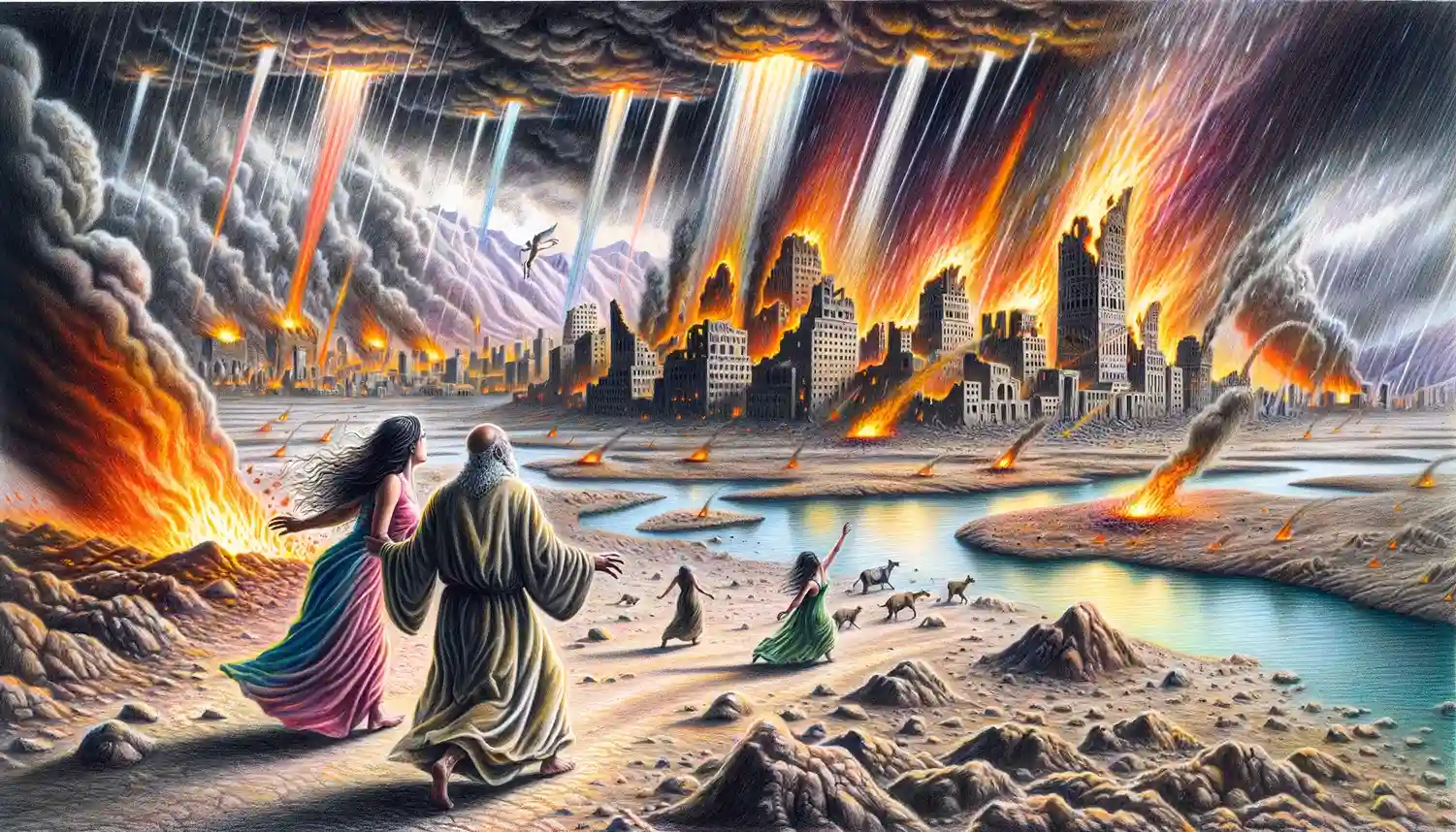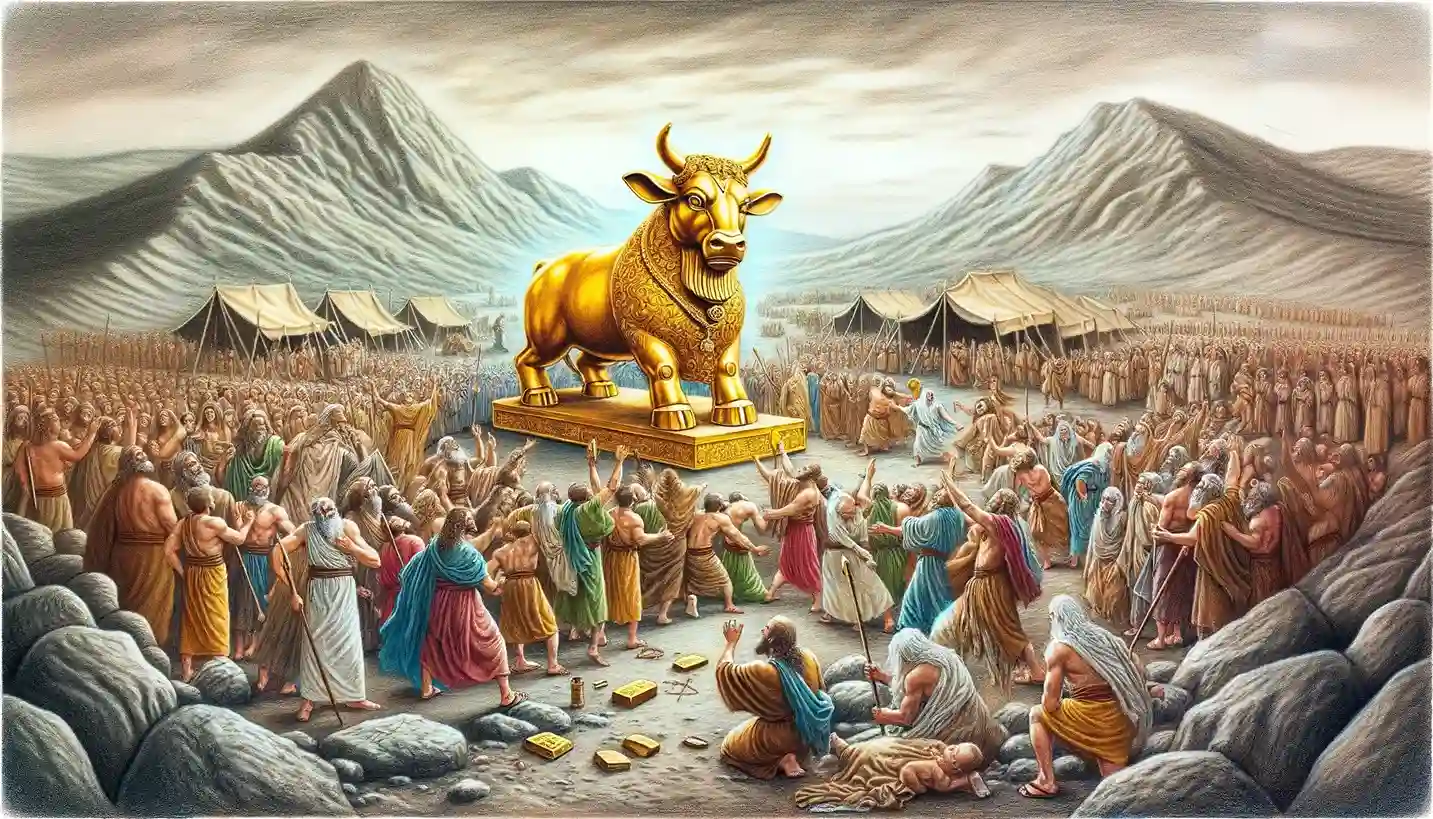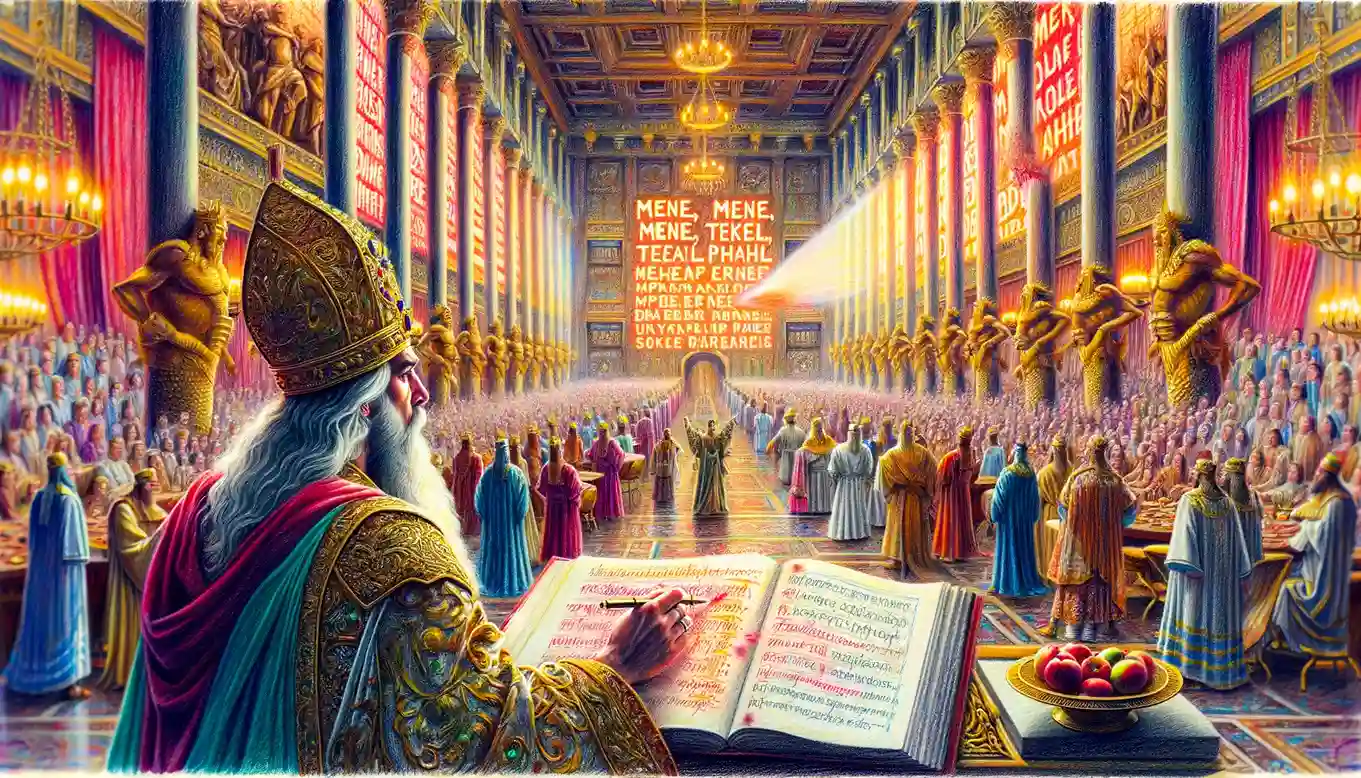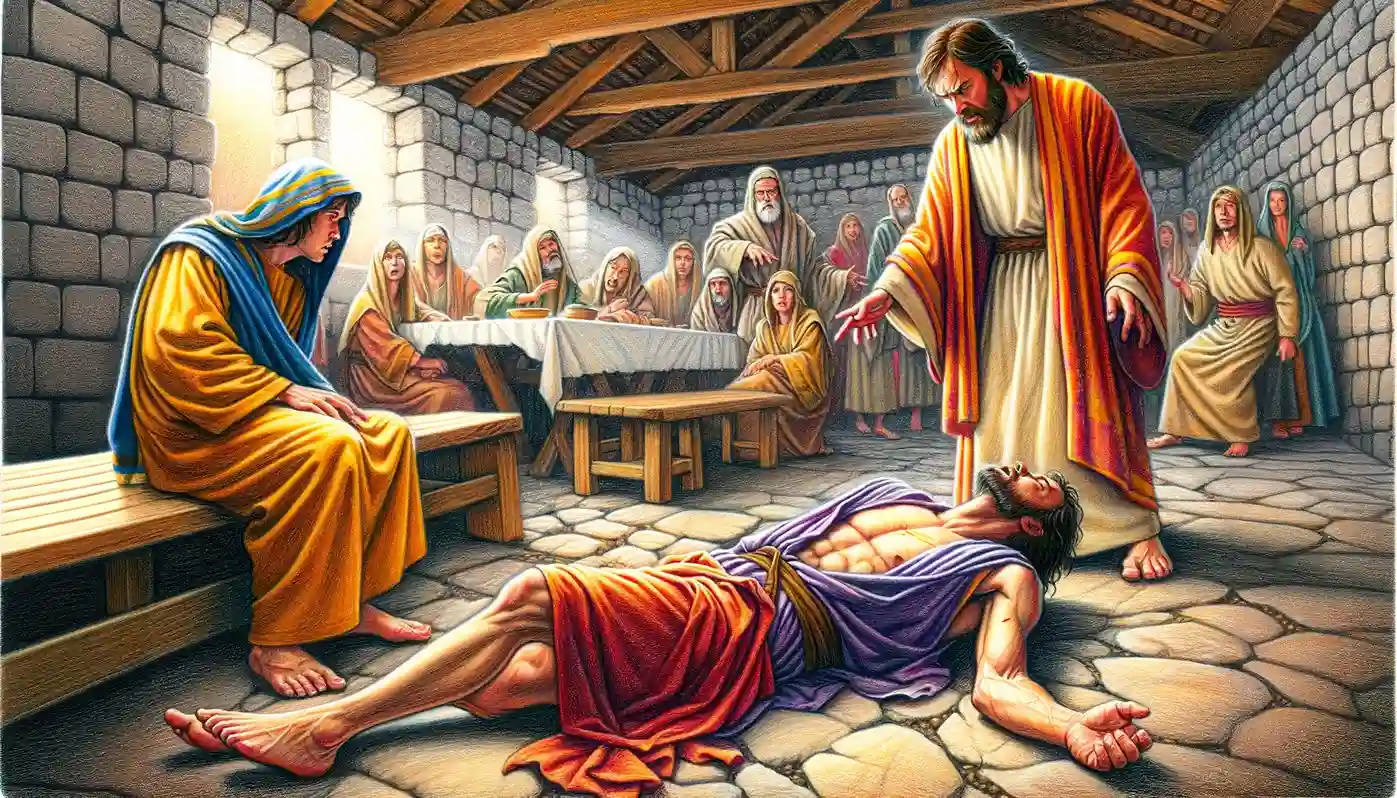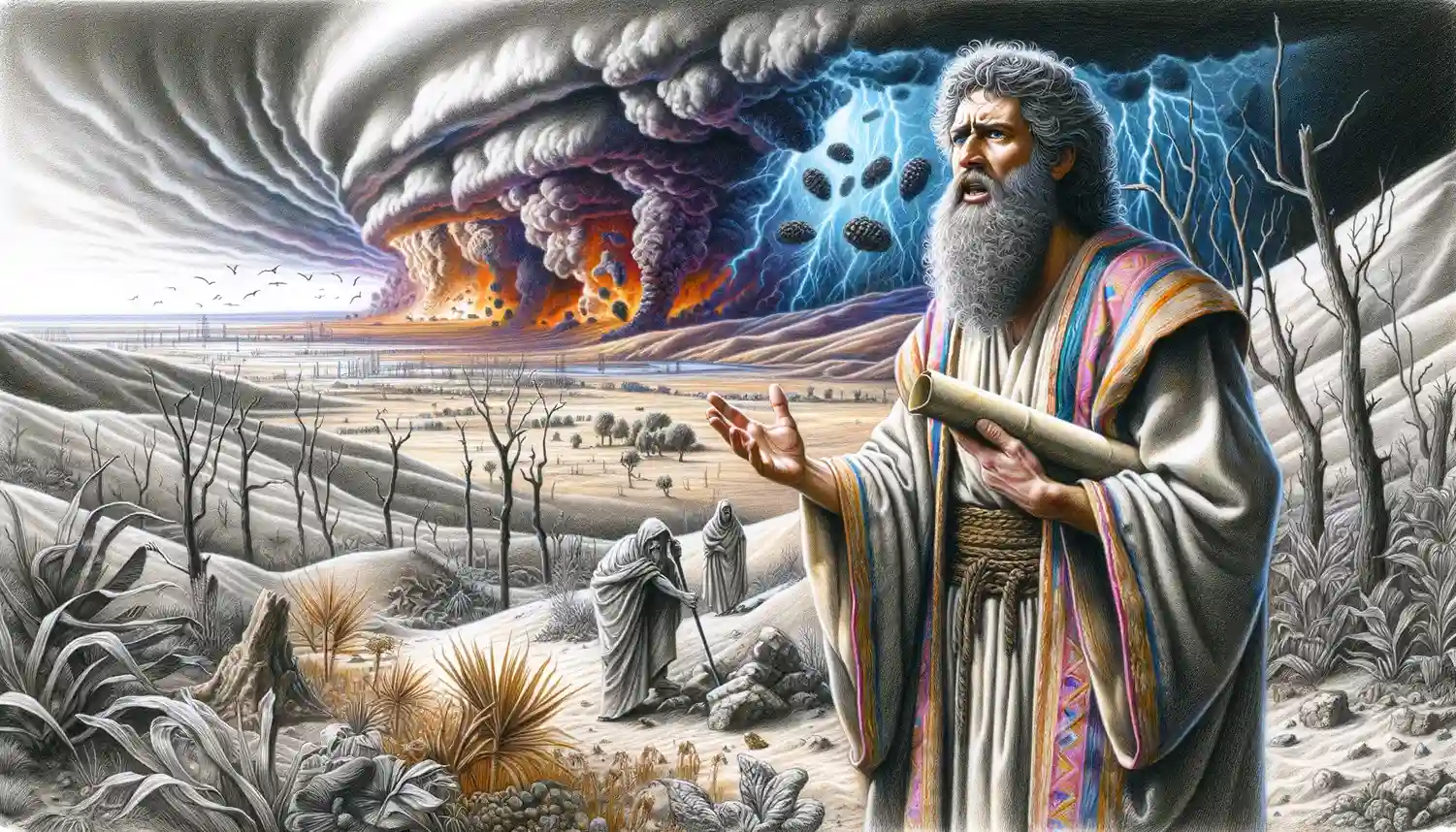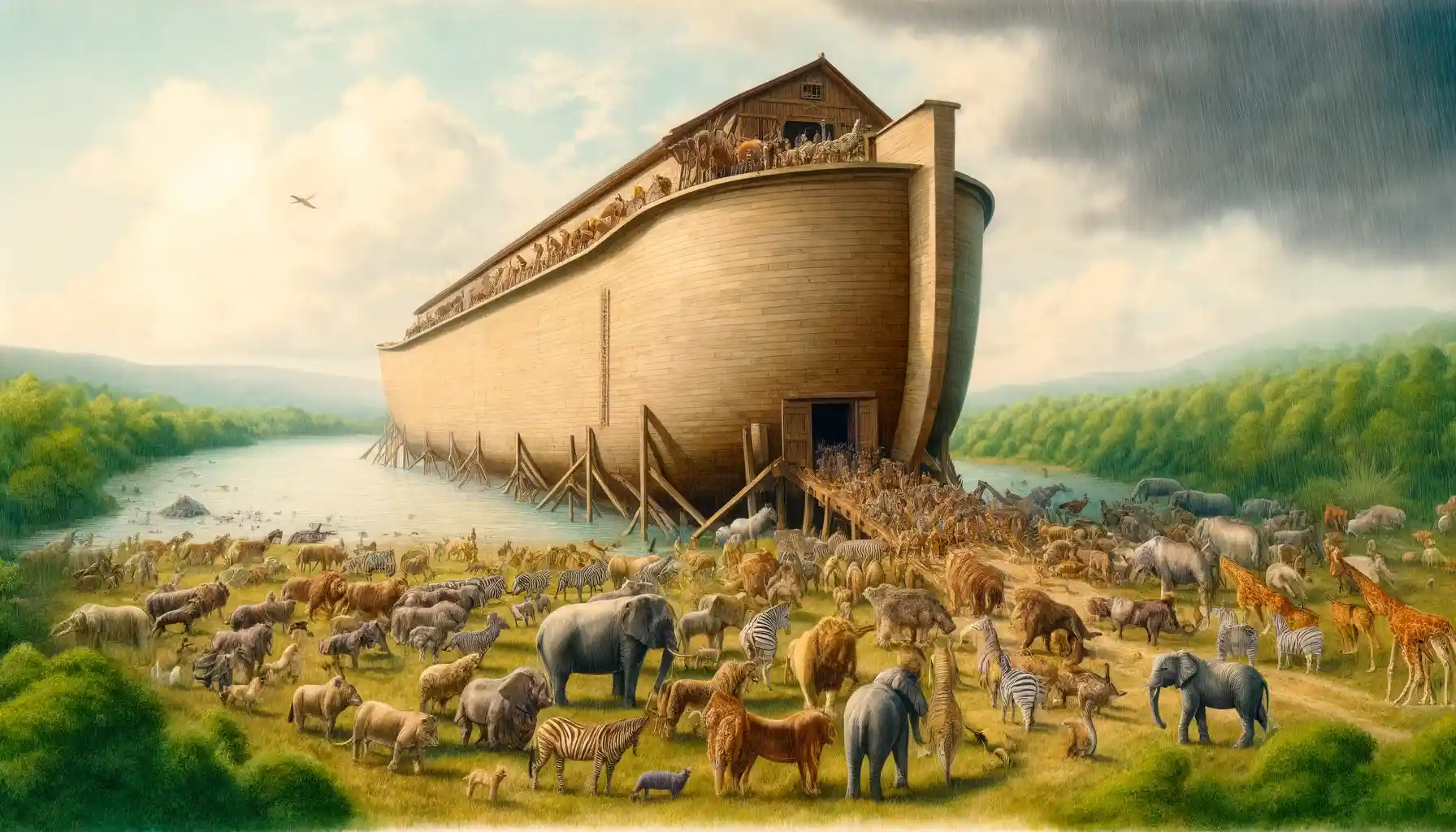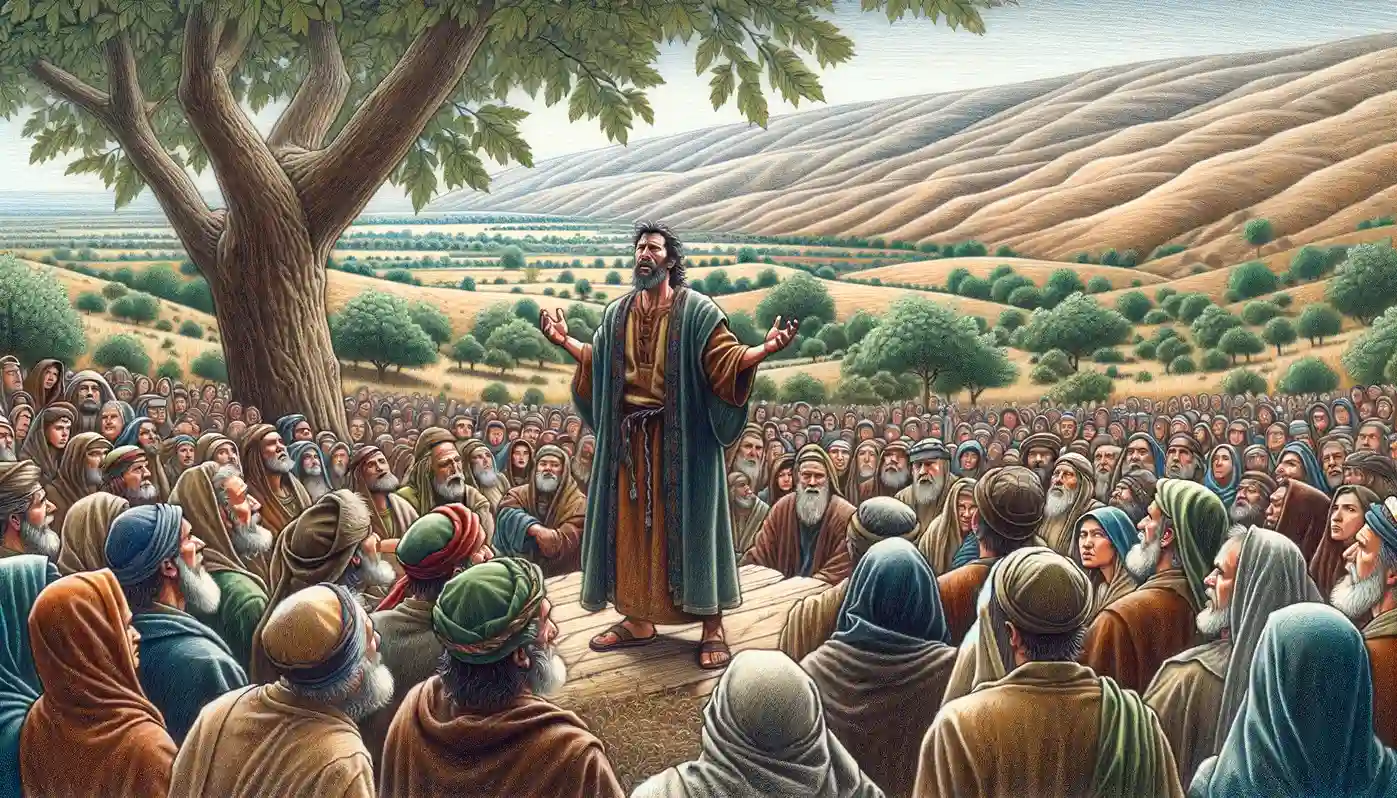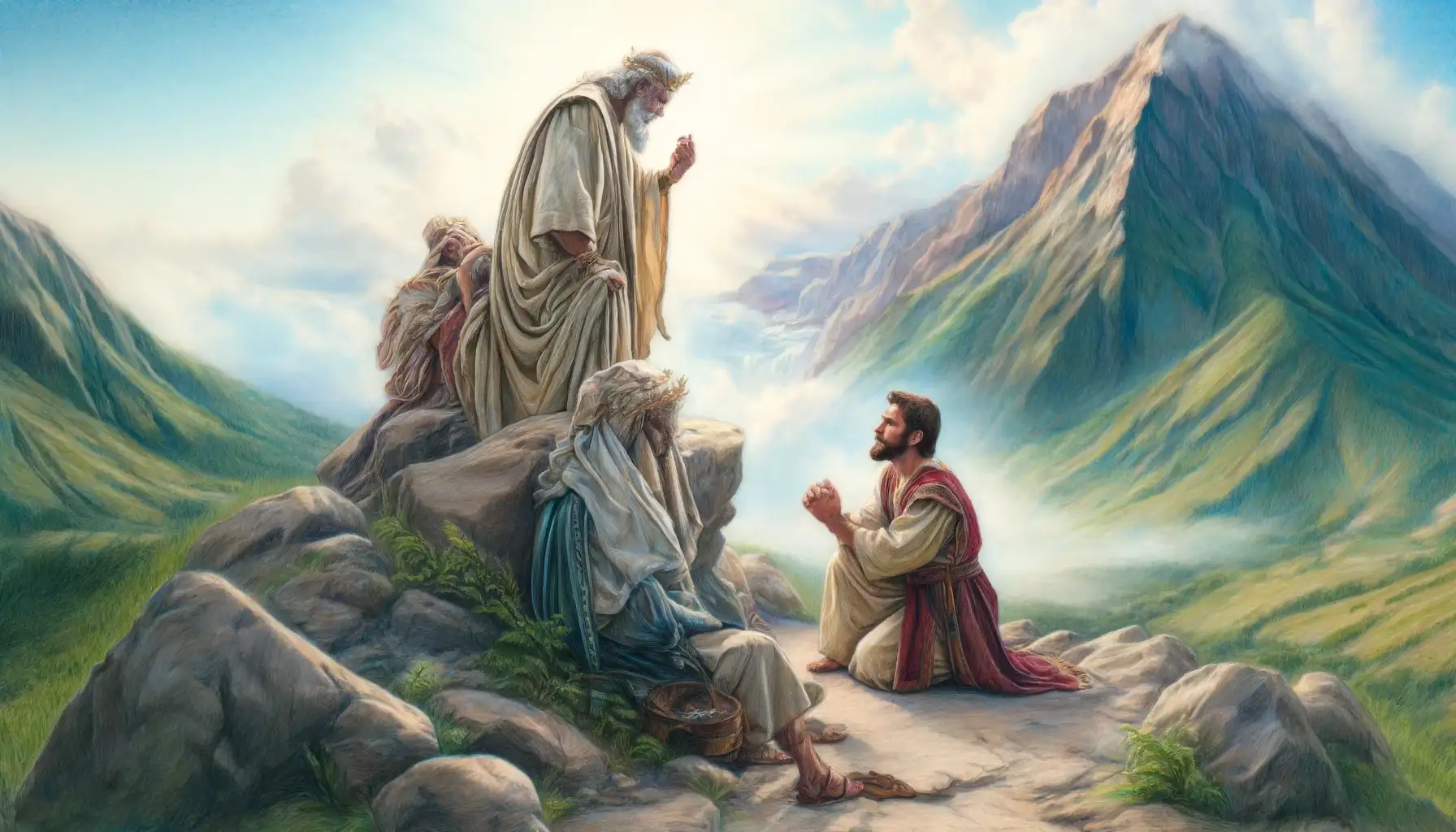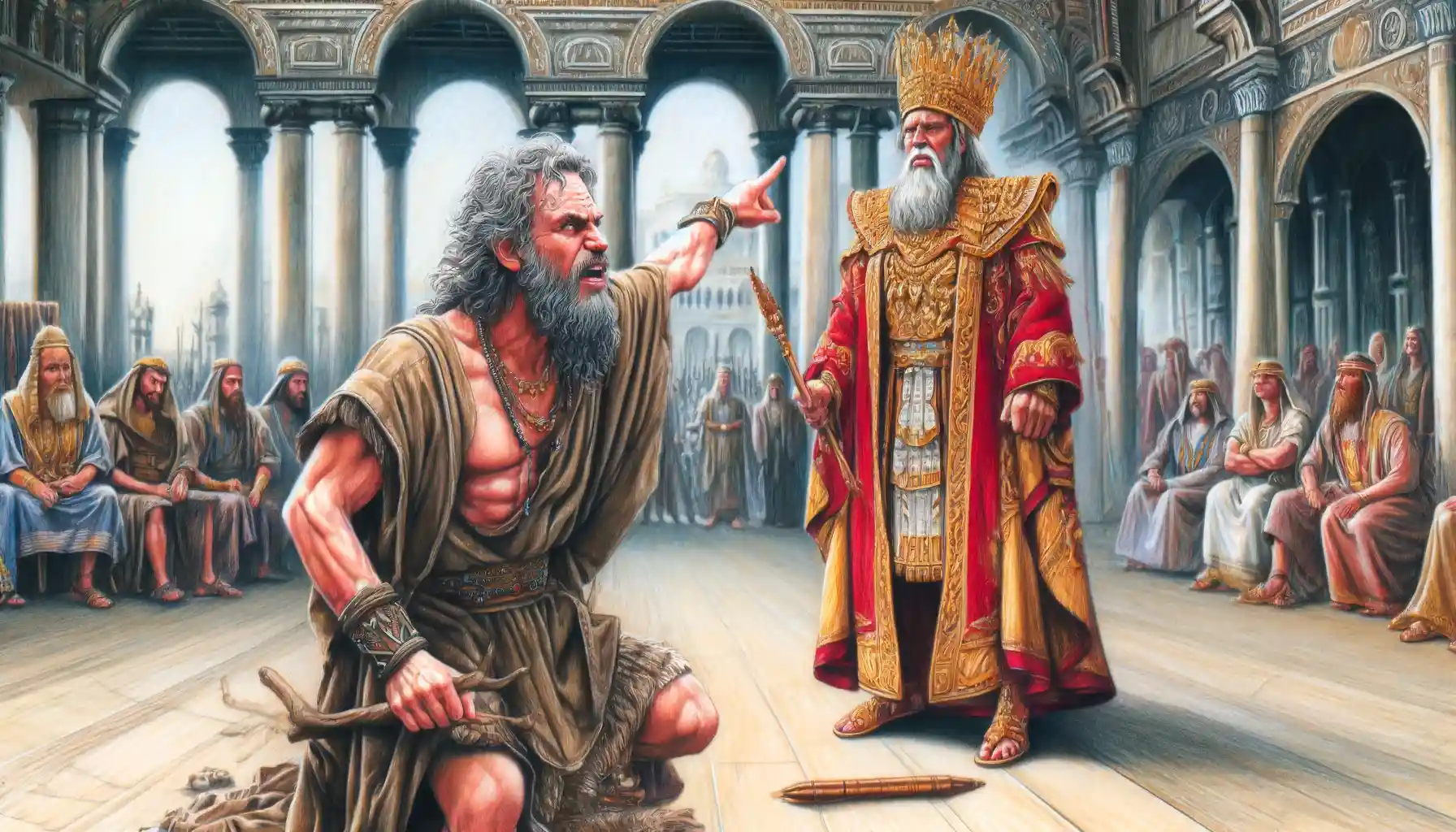Genesis 19:24-25 describes the dramatic and divine destruction of the cities of Sodom and Gomorrah by God, who rained down sulfur and fire upon them due to their wickedness.
The Golden Calf Incident, described in Exodus 32, occurred when the Israelites, in Moses’ absence, created and worshiped a golden calf, leading to severe punishment and a reaffirmation of their covenant with God.
During Belshazzar’s feast, a disembodied hand wrote “Mene, Mene, Tekel, Upharsin” on the palace wall, signaling imminent divine judgment and the fall of Babylon, as interpreted by Daniel.
Sapphira and Ananias were a couple in the early Christian church who were struck dead for lying to the Holy Spirit about the proceeds from a property sale, highlighting the severity of deceit in God’s community.
Joel, a prophet in the Hebrew Bible, is known for his powerful messages about the “Day of the Lord.” His prophecies emphasize themes of repentance, divine judgment, and future restoration, calling the people to return to God in times of …
In the biblical narrative of Noah’s Ark and the Flood, detailed in Genesis chapters 6 through 9, God decides to cleanse the earth of its pervasive wickedness by sending a catastrophic flood, sparing only Noah, a righteous man, his family, and representative animal species who survive in a divinely instructed ark, leading to a renewed covenant symbolized by a rainbow.
Solomon, the son of David and Bathsheba, is a biblical figure known for his wisdom, wealth, the construction of the First Temple in Jerusalem, and his complex legacy involving both great achievements and serious missteps.
The Book of Amos is structured into oracles against the nations, speeches highlighting social injustices, and visions of judgment, all emphasizing themes of justice, true worship, and divine sovereignty, culminating in a message that covenantal obligations are fundamentally moral and ethical, demanding a society where equity and righteousness are upheld, ultimately affirming God’s commitment to both judgment and mercy.
In 1 Kings 19:15-17, God instructs Elijah to anoint Hazael as king over Aram and Jehu as king over Israel, marking a strategic shift in divine intervention from miraculous displays to political maneuvers, thereby setting the stage for significant political upheavals that shape the future course of both nations through divine judgment and the fulfillment of prophetic declarations.
In 1 Kings 17:1, Elijah suddenly appears to challenge King Ahab, announcing a severe drought as divine retribution for Israel’s idolatry, directly confronting the worship of Baal and asserting the supremacy and authority of Yahweh through a bold prophetic declaration.

